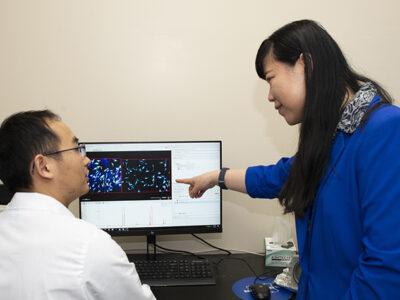31
August

Joseph M. Gabriel, PhD, an historian of medicine, pharmacy, and the pharmaceutical industry, is the first George Urdang Chair in the History of Pharmacy. Gabriel will also undertake a role in the activities of the American Institute of the History of Pharmacy with the title of Historian.
Dr. Gabriel’s research focuses on the contested relationship between scientific and technological innovation, social and cultural change, and state regulation of the market. His book, Medical Monopoly: Intellectual Property Rights and the Origins of the Modern Pharmaceutical Industry (University of Chicago Press, 2014), describes how the use of patents and trademarks by drug manufacturers became scientifically and ethically legitimate over the course of the long nineteenth century. Before the Civil War, physicians, pharmacists, and reputable drug manufacturers all considered the use of patents and trademarks on pharmaceuticals to be an unethical and unscientific form of quackery. Physicians, for example, could be driven out of their profession for prescribing patented goods, and reputable drug manufacturers almost always refrained from using patents or trademarks to protect their interests. By the early twentieth-century, however, intellectual property rights had been reconceptualized as an important means of promoting corporate investment in the drug development process; at the same time, the use of patented and trademarked goods had been rendered ethically legitimate within both the pharmacy and medical communities. These changes underlay the rapid growth of the pharmaceutical industry during the twentieth-century. They also transformed the practice of medicine and pharmacy by directly linking the care of patients to the goal of industry profits. We continue to live with the consequences of these complex changes to this day.
In addition to a second volume on the history of intellectual property rights and the pharmaceutical industry that focuses on the twentieth-century, Dr. Gabriel is also writing a book on drug addiction, the early history of narcotic control, and the subjective experience of an overpowering habit.
Gabriel most recently served as associate professor with Florida State University College of Medicine, Tallahassee, Fla. He received his PhD in History from Rutgers University and in 2006-2007 held a National Science Foundation postdoctoral fellowship in the science studies program at the University of California, San Diego. Gabriel will began his role with the school on July 15, 2015.
George Urdang, helped found the AIHP in 1941, shortly after coming to Madison, a refugee from Naziism. Until September 1957 he served as executive director in its offices at the U.W. School of Pharmacy, when he was named director-emeritus. Urdang is noted for his contributions as an author-historian, “an accomplished and inspiring teacher,” the internationally important role he played in the historical movement in the pharmaceutical field, and his influence on pharmacy. With Professor Edward Kremers, he wrote the standard “History of Pharmacy.”




